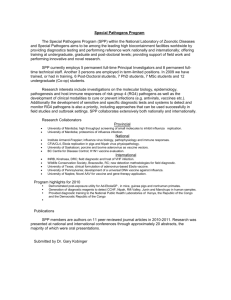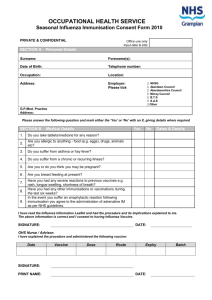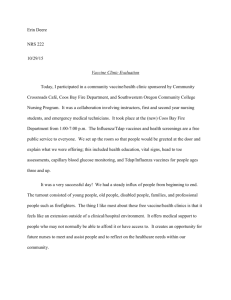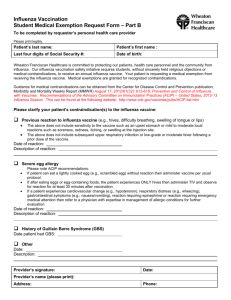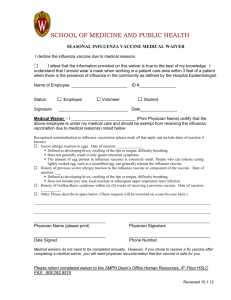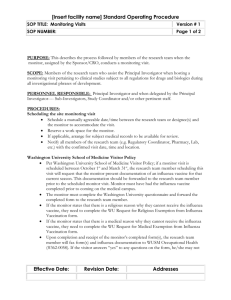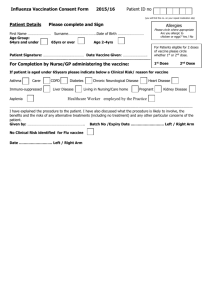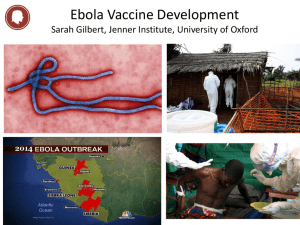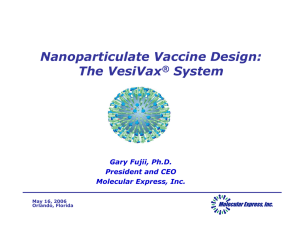The Special Pathogens Program
advertisement
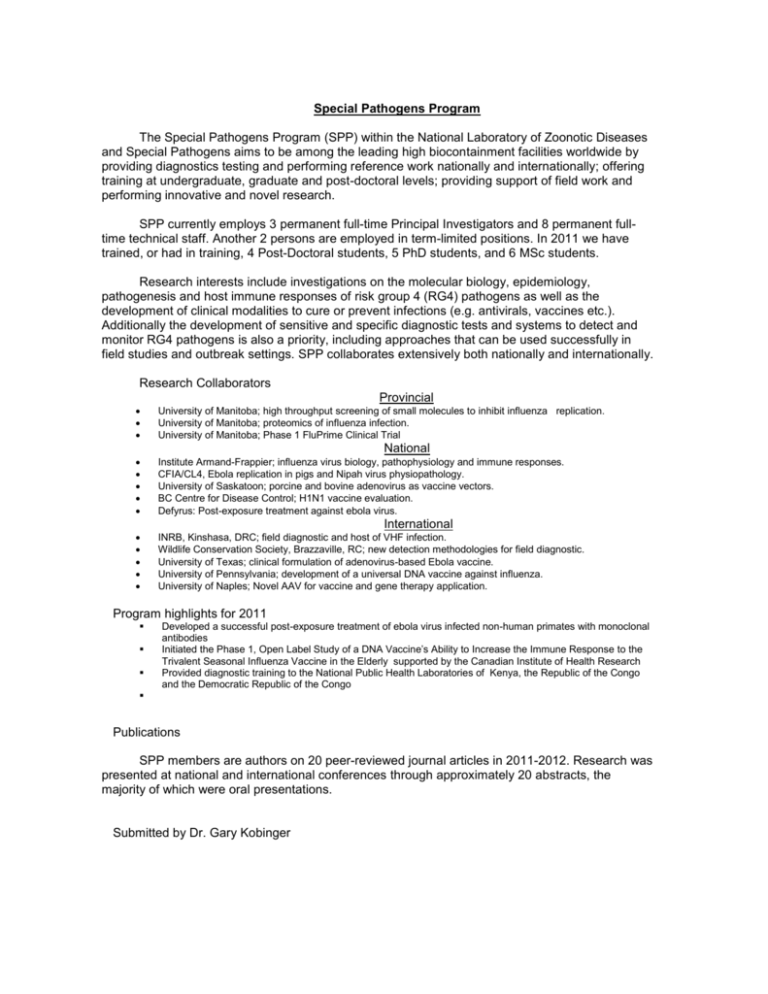
Special Pathogens Program The Special Pathogens Program (SPP) within the National Laboratory of Zoonotic Diseases and Special Pathogens aims to be among the leading high biocontainment facilities worldwide by providing diagnostics testing and performing reference work nationally and internationally; offering training at undergraduate, graduate and post-doctoral levels; providing support of field work and performing innovative and novel research. SPP currently employs 3 permanent full-time Principal Investigators and 8 permanent fulltime technical staff. Another 2 persons are employed in term-limited positions. In 2011 we have trained, or had in training, 4 Post-Doctoral students, 5 PhD students, and 6 MSc students. Research interests include investigations on the molecular biology, epidemiology, pathogenesis and host immune responses of risk group 4 (RG4) pathogens as well as the development of clinical modalities to cure or prevent infections (e.g. antivirals, vaccines etc.). Additionally the development of sensitive and specific diagnostic tests and systems to detect and monitor RG4 pathogens is also a priority, including approaches that can be used successfully in field studies and outbreak settings. SPP collaborates extensively both nationally and internationally. Research Collaborators Provincial University of Manitoba; high throughput screening of small molecules to inhibit influenza replication. University of Manitoba; proteomics of influenza infection. University of Manitoba; Phase 1 FluPrime Clinical Trial Institute Armand-Frappier; influenza virus biology, pathophysiology and immune responses. CFIA/CL4, Ebola replication in pigs and Nipah virus physiopathology. University of Saskatoon; porcine and bovine adenovirus as vaccine vectors. BC Centre for Disease Control; H1N1 vaccine evaluation. Defyrus: Post-exposure treatment against ebola virus. INRB, Kinshasa, DRC; field diagnostic and host of VHF infection. Wildlife Conservation Society, Brazzaville, RC; new detection methodologies for field diagnostic. University of Texas; clinical formulation of adenovirus-based Ebola vaccine. University of Pennsylvania; development of a universal DNA vaccine against influenza. University of Naples; Novel AAV for vaccine and gene therapy application. National International Program highlights for 2011 Developed a successful post-exposure treatment of ebola virus infected non-human primates with monoclonal antibodies Initiated the Phase 1, Open Label Study of a DNA Vaccine’s Ability to Increase the Immune Response to the Trivalent Seasonal Influenza Vaccine in the Elderly supported by the Canadian Institute of Health Research Provided diagnostic training to the National Public Health Laboratories of Kenya, the Republic of the Congo and the Democratic Republic of the Congo Publications SPP members are authors on 20 peer-reviewed journal articles in 2011-2012. Research was presented at national and international conferences through approximately 20 abstracts, the majority of which were oral presentations. Submitted by Dr. Gary Kobinger
